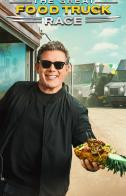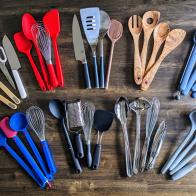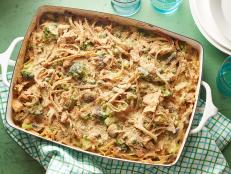What to Do Instead of Health Challenges
Use these tips to build a healthier relationship with food this year.

The Good Brigade
It’s January and like clockwork, wellness challenges are popping up left and right online. The whole “new year, new you” has become so predictable and exhausting, especially after living through the stress of a pandemic. The last thing on my mind is doing squats for 30 days or drinking a smoothie five days a week. These challenges are usually tied to aesthetic or weight goals (i.e. get a six-pack, lose 20 pounds by the summer) and it almost seems like you’re wrong for not having New Year’s resolutions that center on dieting. But what happens when the challenge is over? In my experience, those challenges usually don’t result in consistent habits that are sustained over time because they’re not addressing your basic health needs, like whether you’re eating enough or eating a variety of food groups.
As a registered dietitian, I’ve been practicing an intuitive eating approach with clients who want to work on their relationship with food and health. I’ve seen the negative impacts of dieting, restriction and intentional weight loss. And whether you’re completely cutting out food groups or you have more subtle rules around food and exercise, the restriction mentality can get in the way of helping you develop an enjoyable and pleasurable relationship with food. Also, lifestyle changes that you do consistently, independent of weight loss, are a much better predictor of overall good health.
If you’re interested in practicing healthier habits, here are some things that beat doing a challenge.
Redefine health on your own terms.
Oftentimes our definition of health is tied up with other people’s habits and physical traits. You have your own unique needs, and it’s helpful to take a pause and think about what types of foods and movements work best for you. It’s OK if running on a treadmill or eating chard isn’t your thing. There are so many ways to move and eat — go with what aligns with your preferences, health needs and culture. Cutting out certain foods in the name of health is unnecessary (unless there’s a medical reason) and you may actually find that when you categorize certain foods as off-limits, you end up craving those foods even more. Finding a middle ground between nutrition, movement and pleasure is a much more sustainable way to build habits that last, which leads me to my next point.
Create habits that are sustainable long-term.
A new year rolls around, you’ve created a long list of goals and then a few months later, you barely even remember what those goals were — sound familiar? I’ve seen this happen over and over again with my clients, mainly because they overcommitted to goals that were not realistic long-term. When thinking about what health looks like for you, consider all the things you already have going on and ask yourself if engaging in these new habits is going to make life really hard. If doing some of these things is stressful or feels like a burden, then it’s time to reconsider whether it’s a habit that makes sense.
Remember: Small and steady wins the race.
I know drastic changes — like doing a 60-day challenge or cutting out food groups — sound sexier than drinking more water or adding a variety of vegetables to your meals, but in my experience, it’s the small habits (done over time) that lead to big gains. Overhauling your life in the name of wellness can oftentimes lead to feelings of defeat and hopelessness. Wellness is for everyone and only you get to decide what that looks like for you.
As a registered dietitian/nutritionist and Certified Diabetes Educator, Wendy Lopez, MS, RDN, CDCES is passionate about accessible and culturally relevant nutrition education. She is the co-host of the Food Heaven Podcast, and the co-founder of Food Heaven, an online platform that provides resources on cooking, intuitive eating, wellness and inclusion. When not working on creative projects, Wendy also provides nutritional counseling and medication management to patients with diabetes.
*This article was written and/or reviewed by an independent registered dietitian nutritionist.
Related Links
































